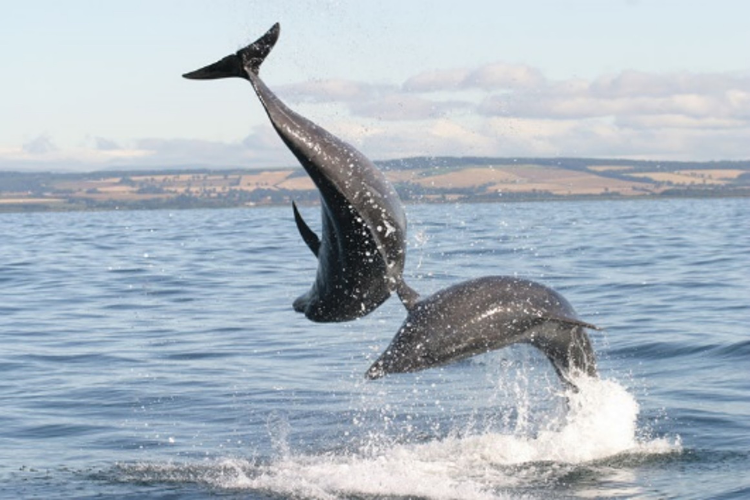St Andrews expert develops award-winning tool to track dolphins by their regional accents
 An expert at the University of St Andrews’ Scottish Oceans Institute has developed a groundbreaking tool that uses machine learning to identify dolphin species based on their calls, even providing different modules for regional ‘accents.’
An expert at the University of St Andrews’ Scottish Oceans Institute has developed a groundbreaking tool that uses machine learning to identify dolphin species based on their calls, even providing different modules for regional ‘accents.’
Dr Julie Oswald created the freely available tool, known as the Real-time Odontocete Call Classification Algorithm (ROCCA). It can categorise dolphin calls by species and comes in different versions linked to different geographical regions.
There are around 42 species of dolphin, and they use hundreds of different sounds to communicate. From a young age, dolphins learn to mimic the sounds they hear and some even develop a unique “signature whistle” that they use to announce their identity throughout their lives.
Because dolphins are so acoustically active, scientists can study them using hydrophones, which are underwater microphones that capture sounds as dolphins pass by.
However, Dr Oswald explains that analysing these sounds is not easy: “We can use visual observations and hydrophones to capture audio, but we can’t easily match those sounds to specific dolphin species.”
ROCCA overcomes this challenge by using machine learning to uncover subtle acoustic differences to match dolphin vocalisations to species with regionally specific settings to account for accents. This allows the tool to identify the species present in a particular area.
Dolphins, like humans, develop region-specific accents, meaning that a bottlenose dolphin in the North Sea may produce different sounds compared to one in the Pacific. ROCCA accounts for these regional differences, helping conservationists more accurately identify dolphin species and assess the impact of human activities such as fishing and sonar disturbances.
Dr Oswald is expanding ROCCA’s applications to other species and ecosystems in regions like West Africa, Macaronesia, and the Mediterranean. Additionally, she works with scientists and conservationists to train them in acoustic monitoring using ROCCA.
The ROCCA was one of the winners of the Earth Rangers 2024 Conservation Technology Award, which recognises innovations and technology-driven solutions that make measurable conservation impacts. Judge Sara Beery, Assistant Professor at MIT CSAIL, praised the tool for its “beautifully practical approach to integrating automated data processing techniques into global bioacoustic monitoring of cetaceans.”
Speaking of the Conservation Technology Award, Dr Oswald said she was delighted to be recognised in this way and that she will use the funds from the award to help create new classifiers, build data collection capacity, and train more people to use ROCCA.
Category Research